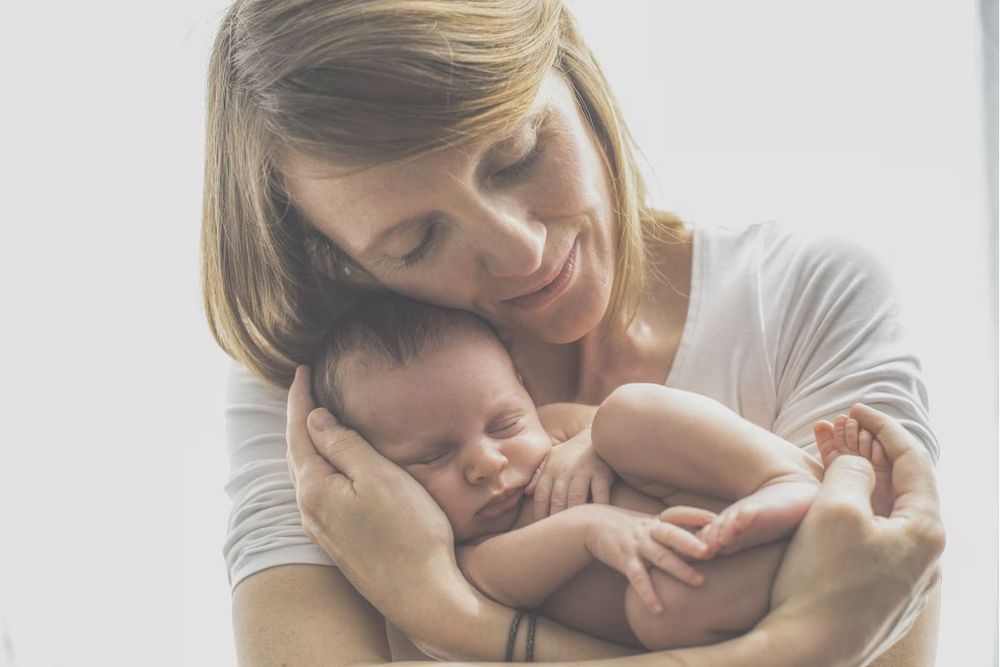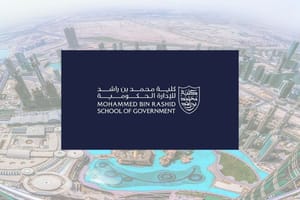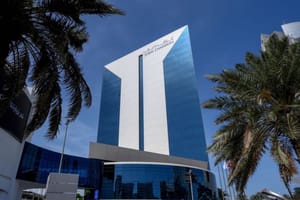The arrival of a new life is a remarkable milestone that has a profound impact on soon-to-be parents. This significant event is filled with a mixture of excitement and anticipation as they prepare to embrace the transformative journey of parenthood.
And for expectant working mothers, it also brings about significant discussions surrounding maternity leave.
Much like other nations, the UAE government has put in place maternity leave regulations designed to support new mothers in their journey to recovery, bonding with their newborns, and embracing their roles as caregivers.
Maternity leave isn't just a benefit; it's a legally mandated necessity that safeguards the well-being of both mothers and their infants, as well as the family unit as a whole.
This article aims to shed light on the intricacies of maternity leave in the UAE, ensuring that mothers-to-be and their families can navigate this pivotal phase with confidence and clarity.
Provisions of Maternity Leave in the Private Sector
In 2021, the UAE introduced Federal Decree-Law No. 33, bringing about significant changes in labor relations, including maternity and paternity leave regulations for private sector employees in Article 30.
- Female workers are entitled to a 60-day maternity leave, structured as follows:
a. The initial 45 days with full pay.
b. The subsequent 15 days with half pay. - Following the maternity leave, if a female worker or her child falls sick due to pregnancy or childbirth, she may be absent from work for up to 45 days, either continuously or intermittently, without receiving any wages. The sickness must be substantiated by a medical certificate from a healthcare provider. Importantly, this absence period does not count toward her overall service duration, which impacts end-of-service benefits or retirement scheme contributions, in compliance with relevant legislation.
- A female worker is eligible for the maternity leave described in Clause (1) of this Article if her delivery occurs at least six months after pregnancy, regardless of whether the fetus was stillborn or born alive but subsequently passed away.
- In the event that a female worker gives birth to a child with a serious illness or a child with specific needs, requiring constant care as confirmed by a medical report, she is entitled to a 30-day leave with full pay. This leave commences immediately after the conclusion of her maternity leave, with the option to extend it for an additional 30 days without pay.
- Employers are required to grant maternity leave upon the female worker's request, starting from the last day of the month preceding the expected delivery month. This request should be supported by a certificate issued by a medical entity.
- It's essential to note that taking maternity leave or being absent from work as outlined in this Article does not impact the female worker's right to access other types of leave.
- In cases where a female worker engages in employment with another employer during her authorized leave period under this Article, her original employer reserves the right to withhold her wages for the leave duration or seek reimbursement for payments made.
Provisions of Maternity Leave in the Public Sector
Maternity leave policies vary across different emirates and government entities in the United Arab Emirates (UAE). Here's a simplified breakdown of maternity leave regulations in various UAE regions and government sectors:
Maternity Leave in the Federal Government (UAE-Wide)
In the UAE's Federal Government, maternity leave is governed by Article 53 of Federal Decree Law No. 11 of 2008, which was subsequently amended by Federal Decree Laws No. 9 of 2011 and No. 17 of 2016. Here are the key provisions:
- Female employees in permanent positions are entitled to a generous three-month maternity leave with full salary. This extended leave period reflects the government's commitment to supporting working mothers during this important time.
- Following the maternity leave, female employees have the option to reduce their working hours by two hours a day for four months to facilitate nursing their child. Importantly, these reduced hours are fully paid, recognizing the importance of breastfeeding for infant health.
- Notably, maternity leave cannot be combined with leave without pay, ensuring that female employees receive compensation during their entire maternity leave period.
Maternity Leave in Abu Dhabi
In Abu Dhabi, maternity leave policies are generally in line with federal regulations but provide additional details:
- Female employees in Abu Dhabi are entitled to a three-month fully paid maternity leave.
- After returning to work, new mothers have the right to two hours of daily leave during the first year after childbirth. This time allows them to nurse their child and is considered part of their employment, ensuring they receive full pay during these nursing hours.
- Male employees are granted a three-day paid paternity leave, allowing them to support their partners during the early stages of parenthood.
Maternity Leave in Dubai Government
Dubai Government regulates maternity leave through Decree No. 14 of 2017. Here are the key provisions:
- Female employees in the Dubai Government are granted a more extended maternity leave period of 90 days, beginning from the delivery date. Importantly, they have the flexibility to apply for maternity leave up to 30 days before the expected delivery date.
- Additionally, annual leave and unpaid leave can be added to maternity leave, making the maximum total number of days 120. This flexibility allows female employees to customize their leave according to their needs and circumstances.
- For one year after birth, mothers can opt for 2 hours of reduced working hours each day, either at the beginning or end of the workday. However, there is no nursing break during the month of Ramadan.
- If a female employee gives birth to a child with special needs, she is entitled to childcare leave from the end of the maternity leave until her baby completes one year.
Maternity Leave in Sharjah Government
In the Sharjah Government, maternity leave underwent significant changes with the issuance of a local decree in 2016. Here's a detailed overview:
- Female employees in the Sharjah Government are entitled to a total maternity leave period of 120 days. This comprehensive leave consists of 90 days of paid leave and an additional 30 days of unpaid leave, allowing for an extended period of time off to care for a newborn.
- The decree also permits the inclusion of annual leave in conjunction with maternity leave. This flexibility means that new mothers can combine their maternity leave with any accrued annual leave, providing them with an extended period of paid time off to bond with their child and ensure their well-being.
- Recognizing the importance of breastfeeding for infant health, the decree grants new mothers two hours daily for nursing their child. This nursing allowance is available for a duration of six months after childbirth, ensuring that mothers can provide their infants with the essential care and nourishment they need during their early stages of life.
Maternity Leave in Ras Al Khaimah Government
Ras Al Khaimah Government also made significant improvements to its maternity leave policies, enhancing support for working mothers and families:
- As of November 2016, maternity leave in Ras Al Khaimah Government is extended to a generous 90 days of paid leave, providing mothers with ample time to care for their newborns and adapt to the demands of motherhood.
- Even more notably, in 2015, the nursing period for mothers was extended to a full year from the birth of the baby. This extended nursing period recognizes the importance of breastfeeding for infant health and ensures that mothers have the necessary time to provide this critical care to their infants during their first year.
Maternity leave policies in the UAE reflect the country's commitment to supporting working parents and fostering family values. These policies vary between public and private sectors and across different emirates, with the federal government providing extensive maternity leave to its female employees.
In August 2020, a significant milestone was achieved when the late H. H. Sheikh Khalifa bin Zayed Al Nahyan, the then President of the UAE, approved amendments to the Labour Law, introducing parental leave policy in the private sector.
These policies reflect the UAE's dedication to nurturing a supportive environment for its workforce, emphasizing the importance of family life alongside professional commitments. The introduction of parental leave represents a significant step forward in enhancing the quality of life for working parents in the UAE and sets an admirable example for the broader region.
Also Read:














